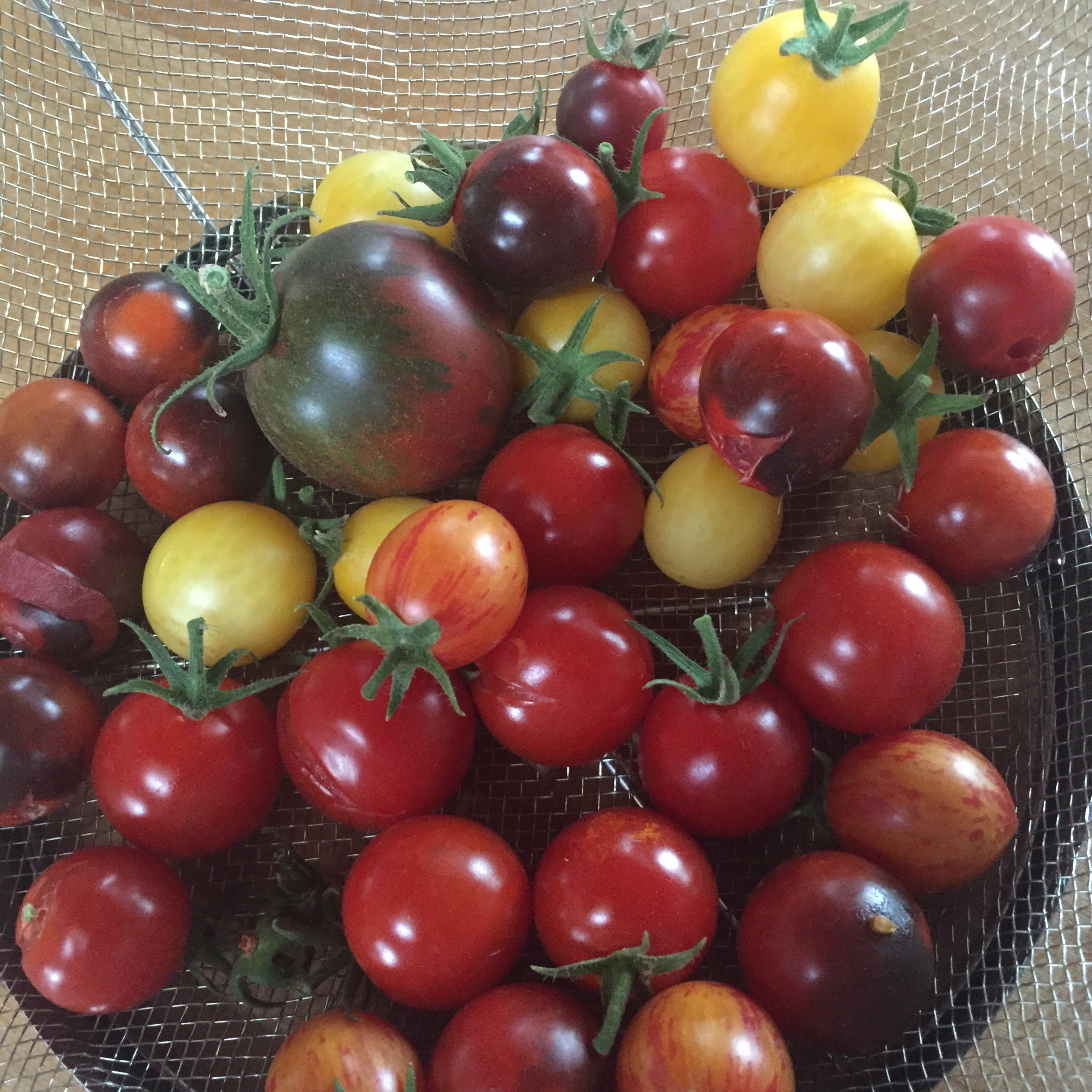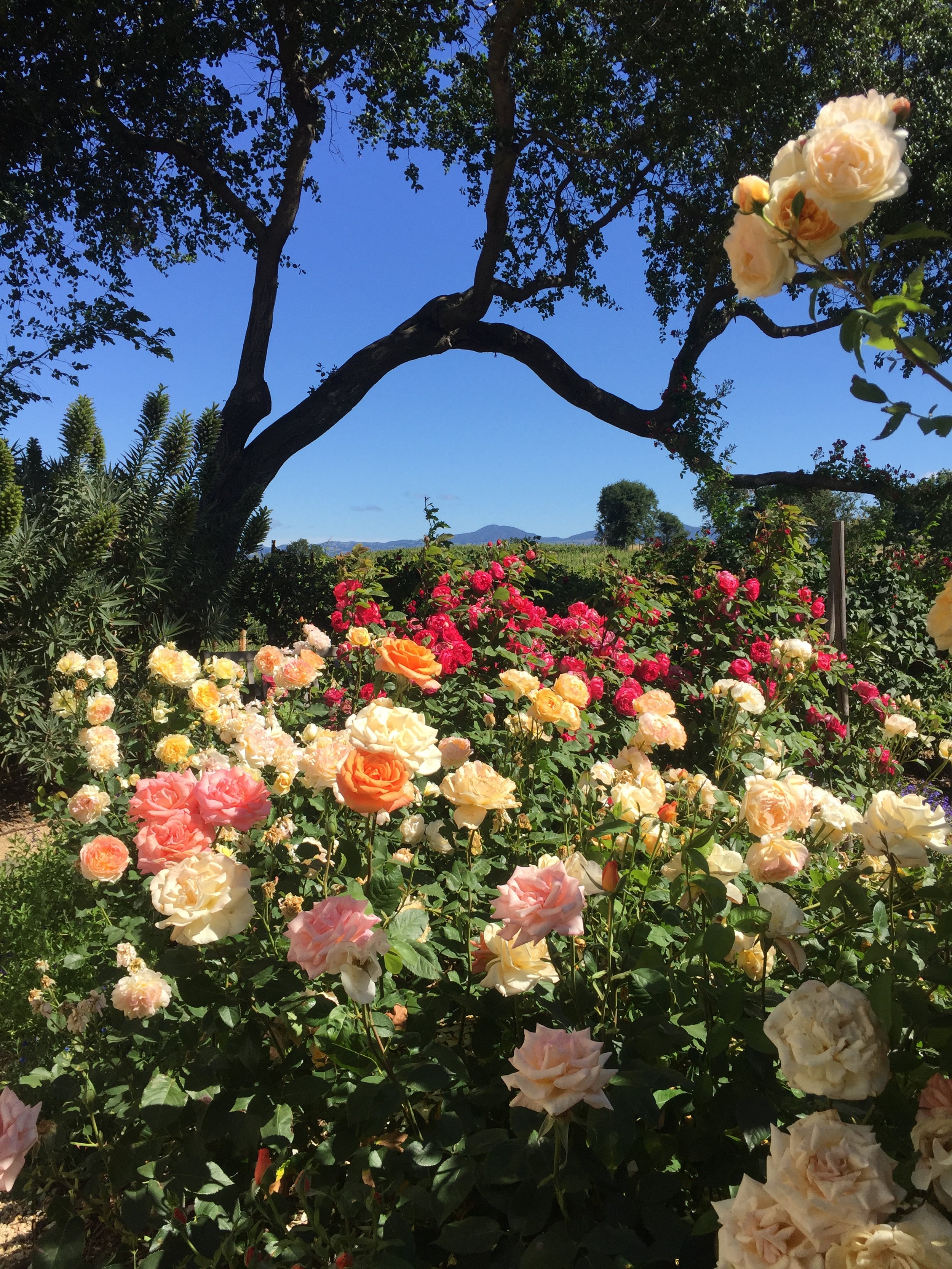Attention and Intention
Whether you’re participating in a protest, trying to steer clear of one or scrolling images of violent conflicts around the world, campus life is FRAUGHT! This is already a stressful time—finals, graduation and for many, the great unknown ahead—but this particular spring is bringing an unprecedented sense of collective anxiety, uncertainty and angst for students and the public at large. It is vibrational and contagious.
Yet there are BLOOMS. As I check in with campus friends at our Plant Futures Chapters around the world, I hear elevated reports of flowers and bees happily breaking out in fields and gardens and in cracks in the sidewalk. These are promises of new life, cycles and the continuing passage of seasons. Life goes on amidst these struggles and it takes all we’ve got to hold both the pain and suffering that is all around us and the beauty that is ever present, if we can just find it and focus on it. A lot of our overall experience in life is determined by where we are able to direct our attention at any given moment.
Reclaiming our own attention is a challenge at a time where there are engineered efforts to distract and capture our focus every time we turn our heads or open our phones. Our social media driven materialistic culture is insatiably organized to monetize.
When the 'world is too much with us' (as Wordsworth scripted in his famous sonnet), I try to imagine an antidote for the present situation. Antidotes are famous concoctions that counteract poisonings, but we can also think of them metaphorically as remedies for circumstances that feel toxic or overwhelming to our wellbeing.
Just as an antidote neutralizes a poison's effects, we can cultivate practices that clear our minds of incessant distractions and reground us in what truly matters. Perhaps the antidote is carving out periods of digital detox, where we resist the engineered attempts to hijack our attention. Or maybe it's nurturing hobbies and relationships that inspire us, crowding out space for shallow pursuits. An antidote could be any restorative acts of mindfulness – journaling, meditation, exercise, or immersion in nature – that inoculate us against the toxicity of overconsumption and overstimulation. By being intentional about our antidotes, we reclaim autonomy over our focus amidst a society working relentlessly to divert it elsewhere.
I have two suggestions for antidotes for you to experiment with this spring and summer: Forest bathing and growing an "honest" tomato in your garden or patio.
Forest bathing (a concept borrowed from the Japanese), involves immersing oneself in natural surroundings and can be an antidote to the overstimulation of constant digital inputs and urban noise. Allowing yourself to unplug and simply bask in the rejuvenating ambience of trees, flowing water, dappled sunlight and fresh air can reset your mind and recharge your spirit. This practice helps dissipate stress and renews our connection to the broader cycles of life beyond human constructs. Can you seek and find a safe haven in nature and commit to spending meaningful time there each day or week?
Similarly, tending to a garden, even just a humble potted tomato plant, serves as an antidote by grounding us in the tangible and rewarding process of nurturing growth from seed to fruit. Unlike the instantaneous but hollow gratification of virtual pursuits, patiently caring for a living plant builds skills like dedication, delayed gratification, and appreciating the fruits of one's labors. Growing your own "honest" tomato attunes you to nature's rhythms while providing a tasty reminder of life's simple but sustaining pleasures. An honest tomato is something you grow and attend to. You nurture it, water it, feed it and it in turn feeds you. The taste of an honest, homegrown tomato is nothing like what you can buy in the store. (Anything you grow yourself tastes better anyway!)
Many nurseries and farmers markets offer herb and vegetable starts during springtime, providing an opportune moment to begin cultivating your own garden antidote. You don't need much - just a pot, some nutrient-rich soil, and a strong, rooted intention. Even if limited to a sunny windowsill, patio or balcony, you can create a flourishing summer garden oasis.
Tending to plantlife requires consistent, mindful attention and care. You'll need to monitor soil moisture, ensure adequate sunlight, and patiently nurture growth from sprout to harvest. This routine of engaged observation and nurturing can serve as a grounding practice amid our often frenzied, distracted lives.
The rewards of gardening extend beyond the physical bounty of fragrant herbs or vine-ripened vegetables. There's a simple but profound satisfaction in coaxing life from soil and seed through one's own caring efforts. The very acts of getting your hands dirty, watching green tendrils unfurl, and eventually delighting in the fruits of your labor can instill a sense of amazement at nature's cycles playing out in real-time.
I can almost guarantee that keeping this living connection to the grounded reality of a garden or forest will decrease anxiety while increasing gratitude, presence, and optimism. Your potted plants may become a ritualistic oasis and reminder that growth frequently arises from humble, patient nurturing amid life's inevitable commotion.
Hang in there Plant Futurists! Happy Spring! I always appreciate hearing from you, so if you have suggestions for other useful antidotes, please share them with me and our community!
Kindest wishes and all good thoughts,
Will Rosenzweig
Faculty Steward, Plant Futures Initiative




